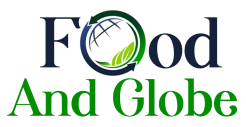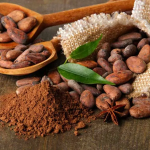Embracing veganism is not just a dietary choice but a lifestyle change. It involves abstaining from all animal products, which, while beneficial for health, the environment, and animal welfare, also calls for careful nutritional planning. Understanding the nutritional considerations and having practical tips to navigate a vegan diet can ensure that you meet all your dietary needs.
Understanding the vegan diet
A vegan diet excludes all animal products, including meat, dairy, eggs, and honey. It emphasizes fruits, vegetables, legumes, grains, nuts, and seeds. While rich in certain nutrients, there are key areas where vegans need to be particularly mindful to avoid deficiencies.
Key nutritional considerations
1. Protein
– importance: essential for muscle repair, hormone production, and overall health.
– vegan sources: lentils, chickpeas, tofu, tempeh, quinoa, and nuts.
– tip: incorporate a variety of protein sources to ensure a complete amino acid profile.
2. Vitamin b12
– importance: critical for nerve function and blood cell formation. Vitamin b12 is not naturally present in plant foods.
– sources: fortified foods (like plant milks, some soy products, and breakfast cereals) and b12 supplements.
– tip: regularly consume fortified foods or take a b12 supplement.
3. Iron
– importance: essential for blood production and oxygen transport.
– vegan sources: lentils, chickpeas, beans, tofu, cashews, chia seeds, whole grains, and dark leafy greens.
– tip: combine iron-rich foods with vitamin c-rich foods to enhance absorption.
4. Calcium
– importance: vital for bone health and muscle function.
– vegan sources: fortified plant milks and juices, tofu made with calcium sulfate, almonds, and dark green leafy vegetables.
– tip: ensure adequate calcium intake from various sources daily.
5. Omega-3 fatty acids
– importance: important for heart and brain health.
– vegan sources: flaxseeds, chia seeds, hemp seeds, walnuts, and algae-based supplements.
– tip: consider an algae-based omega-3 supplement for dha and epa, especially important for pregnant women.
6. Vitamin d
– importance: crucial for bone health and immune function.
– sources: sunlight, fortified foods, and supplements.
– tip: get regular sun exposure and consider a vitamin d supplement, especially in winter.
7. Zinc
– importance: vital for immune function and wound healing.
– vegan sources: legumes, nuts, seeds, and whole grains.
– tip: soak nuts and seeds to improve zinc absorption.
Practical tips for a balanced vegan diet
– diverse diet: include a variety of foods to cover all nutrient bases.
– meal planning: plan meals to ensure you’re getting a balanced intake of nutrients.
– mindful snacking: choose nutrient-rich snacks like fruits, nuts, and seeds.
– regular check-ups: regular health check-ups can help monitor nutrient levels.
– education: stay informed about nutrition to make educated choices about your diet.
Conclusion
Navigating veganism can be a fulfilling and health-promoting journey if done correctly. By being mindful of key nutrients, diversifying your diet, and planning your meals, you can enjoy the benefits of veganism while maintaining optimal health.











